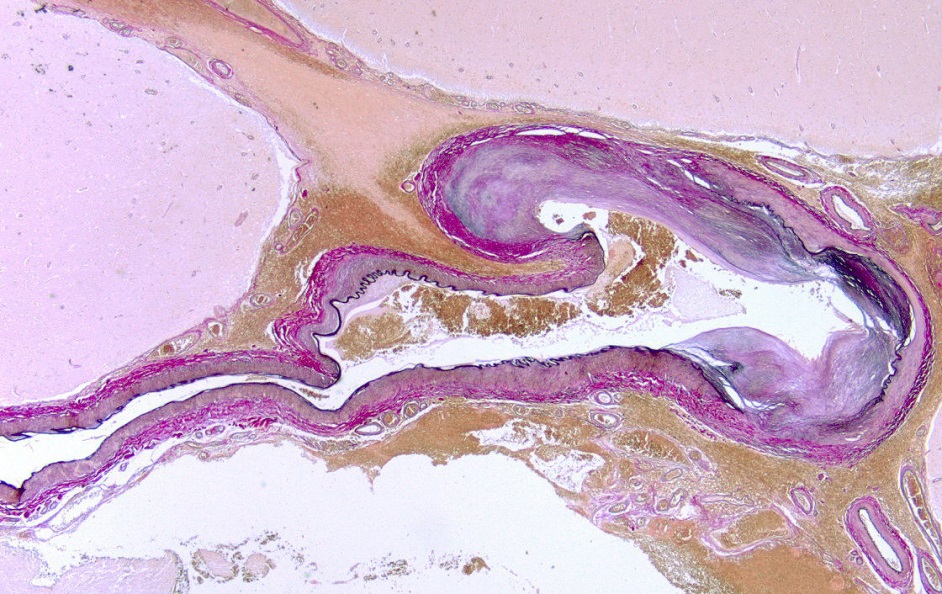
Brain UK study ref: 13/009,
Lay summary,
Project status: Closed
CAA in autonomic dysfunction
Prof Roxana Carare, University of Southampton
Alzheimer’s disease is an age related neurodegenerative disorder which affects approximately 24%-33% of the Western population aged 85 and above. Symptoms include profound cognitive decline and memory loss, which can often be explained by a neurotoxicity induced through accumulation of extracellular Aβ depositions. Chronic fatigue syndrome is a condition characterised by a disabling fatigue. Current figures suggest upwards of 250,000 people in the United Kingdom currently suffer from this poorly understood condition. In recent years reputable evidence has identified chronic fatigue syndrome as a model of autonomic dysfunction, resulting in providing support for a neurological basis of chronic fatigue syndrome.
This study aimed to identify whether Aβ deposits were present in cases of autonomic dysfunction and to establish if an Alzheimer’s disease-like neuropathology could be held accountable for a degree of chronic fatigue syndrome symptomology. Using immunohistochemistry, all cases of autonomic dysfunction provided evidence for intracellular deposition of Aβ in cortical regions of the brain. However, the percentage coverage of Aβ was significantly lower than that recorded in severe Alzheimer’s disease.
Future investigations are needed to identify the exact localisation of intracellular deposits and further investigate the effect of autonomic dysfunction on cholinergic acetyltransferase and cholinergic innervation.
It was concluded that chronic fatigue syndrome has a similar neuropathology to that of early-stage Alzheimer’s disease. With these findings, it is hoped such novel findings will evoke enthusiasm for future research and support utilisation of the global wealth of Alzheimer’s disease knowledge, to improve the current understanding and treatment of chronic fatigue syndrome.
